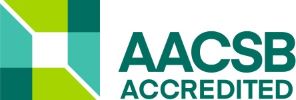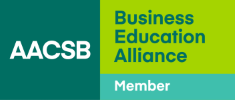Economics BA (Hons)
 Economics (Major).jpg)
UCAS Code: CCE1|Duration: 3 years|Full Time|Hope Park
UCAS Campus Code: L46
Accredited|Work placement opportunities|International students can apply|Study Abroad opportunities
About the course
This is an exciting time to study Economics: great ideological debates, policy decisions and technological changes are taking place that impact our lives, ranging from the direction of globalisation and international trade and trade restrictions, to trends in economic inequality, the environment and climate change, the gender pay-gap, migration flows, economic integration, financial crises, and the challenges posed by the recent Covid-19 and global conflicts crises.
Our Economics programme will delve into an in-depth study of real economic issues like the above, based on a solid foundation of an eclectic economic theory, and an understanding of how economic policy is formulated. This will enable students to gain the analytical and critical evaluation skills needed to recognise how national and global issues affect a society’s welfare.
The course is designed to provide students with the experience, knowledge and skills needed to succeed in the job market, by putting a strong emphasis on analytical, quantitative and research skills highly valued by employers. It will also develop a student’s ability to apply the concepts, theories and quantitative methods to business and public policy decisions, in a diverse range of settings. As we believe your ability to gain meaningful employment after you graduate is really important, there is also a strong focus on helping you to develop your more general and transferable employability skills.
In this course, students will study a range of areas, including Quantitative Methods, Econometrics, Intermediate Micro and Macroeconomics, History of Economic Thought, Banking & Finance, and International Economics and Finance.
Course structure
Each unit is divided between lectures, seminars and tutorials: in your first year of study there are approximately 6 teaching hours per week, which will decrease to approximately 5 teaching hours in your second and third years. On top of teaching hours, you are also expected to spend a number of hours studying independently.
Accreditation
Liverpool Hope Business School is an accredited member of AACSB International - The Association to Advance Collegiate Schools of Business. For over a century, AACSB Accreditation has been synonymous with the highest standards in business education. Accredited schools have successfully undergone a rigorous review process conducted by their peers in the business education community, ensuring that they have the resources, credentials, and commitment needed to provide students with a first-rate, future-focused business education.
Assessment and feedback
Assessment includes, but is not limited to, in-class tests, written final exams, individual and group reports, class presentations, and applied essays on trade journal articles. Both verbal and written feedback is supplied.
Year One
Principles of Economics
The introduction to Economics theme will cover areas on Microeconomics and Macroeconomics, such as supply and demand analysis and extensions, market failures, market structure and performance, factor markets and income inequality, as a well as GDP measurement, unemployment and inflation, economic growth, inflation, exchange rates determination, international trade, fiscal and monetary policy and government expenditure and taxation.
Quantitative Methods
With Quantitative Methods the student will be introduced to a basic knowledge of descriptive and inferential Statistics, including an introduction to the use and analysis of data by employing statistical software.
History of Economics Thought
The student will be exposed to the evolution of economic thought, focusing on the development of economic theory from Adam Smith’s Wealth of Nations to modern debates that continue to shape the discipline. In so doing, it covers the evolution of theories regarding the working of prices and markets, population and economic growth, on efficient allocation of resources and income distribution, and the alternative economic systems. Significant historical figures contributing to the evolution of economic thought include Adam Smith, David Ricardo, John Stuart Mill, Robert Malthus, Karl Marx, Alfred Marshal, John Maynard Keynes, John Hicks, Paul Samuelson and Milton Friedman.
Year Two
Intermediate Economic Theory
This element will cover intermediate microeconomic and macroeconomics analysis that will focus on marrying formal theory with robust, thoroughly-analysed real-world problems. Economic theory is introduced through a combination of calculus, algebra, and graphs. The course integrates estimated, real-world problems and applications, using a step-by-step approach to demonstrate how microeconomic and macroeconomic theory can be applied to solve practical problems and policy issues.
Introduction to Econometrics
In Econometrics, the student will be exposed to an overview of econometric methods and statistical techniques needed to test the validity of research hypotheses and economic relationships. The theme focuses on econometric tools relevant in applied economics with special emphasis placed on the:
- Basic regression analysis with time series data;
- Panel data models;
- Model misspecification such as omitted variables or inclusion of irrelevant variables;
- Use of SPSS/STATA and other statistical packages;
- Introduction to maximum likelihood estimation;
- Nonlinear models.
Contemporary Issues in Global Economics
In this element the student will study how economic theories can be applied to issues important for contemporary global economy, focusing on current issues facing the global economy with special emphasis placed on the:
- Recent financial crisis causes and consequences
- European Union integration and the economic consequences of Brexit
- Emerging economies
- International trade, trade wars and trade protectionism
- Globalisation and mass migration
- Environmental Economics
Year Three
International Economics & Finance
The theme on International Economics & Finance focuses on understanding the development of international economic theory in a changing world economy by analysing actual problems in international economic policy. It puts forward an analytical framework for shedding light on current international events. The course analyses both the real (trade) and monetary sides of the field and theoretical models are supported by pertinent data and policy questions. Finally, the course analyses the history and role of major international economic institutions, including the IMF, the World Bank and the WTO.
Banking & Finance
The student will study the economic theories of banking and finance with special emphasis placed on:
- The role of banking and the financial system in the wider economy;
- The microeconomic basis of financial economics;
- The principles of monetary policy;
- Regulation and government intervention in the banking and financial sector;
- The impact of the financial crisis on banking and financial system;
- Financial liberalisation
Research Project (or Integrated Dissertation)
During the year, students will complete a Research Project (or an Integrated Dissertation). This enables them to explore in depth a subject of their choosing related to Economics. Students will be able to deploy their research skills, data gathering and analysis and develop the ability to critically analyse their work and draw appropriate conclusions.
Entry requirements
| A-Levels | BCC |
|---|---|
| UCAS Tariff Points | 104 UCAS Tariff points must come from a minimum of two A Levels (or equivalent). Additional points can be made up from a range of alternative qualifications |
| BTEC | DMM |
| Access to HE | 104 Tariff Points |
| IB | 24 |
| Irish Leaving Certificate | 104 Tariff Points from Higher Level qualifications only |
| Welsh Baccalaureate | This qualification can only be accepted in conjunction with other relevant qualifications |
| T-Levels | Merit |
| Subject Requirements | GCSE Mathematics |
International entry requirements
| Specific Country Requirements | Select your country |
|---|---|
| IELTS | 6.0 overall (with reading and writing at 6.0) and no individual score lower than 5.5. We also accept a wide range of International Qualifications. For more information, please visit our English Language Requirements page. |
Careers
The UK's largest recruiter of economists is the Government Economic Service (GES). The GES is the professional body for UK economists in the public sector and employs over 1,500 economists working across more than 30 government departments and agencies. Other major financial organisations such as the Bank of England, also recruit economics graduates onto graduate training/development programmes.
Other employers include:
- privatised utilities and their regulating bodies;
- larger local authorities;
- regional development agencies;
- management consultancies;
- specialist economic consultancies;
- banks (high street and city);
- insurance and accountancy firms;
- trade unions;
- political parties;
- international organisations such as the United Nations, and non-governmental organisations (NGOs) such as the Red Cross;
- financial journals and newspapers.
Enhancement opportunities
Work Placement Opportunities
- The Placement Year: Available to all undergraduate students this a 9-12 months professional placement between the 2nd and 3rd year of studies with students completing worthwhile projects.
- Short to medium-term flexible paid placements and internships.
SALA
The Service and Leadership Award (SALA) is offered as an extra-curricular programme involving service-based experiences, development of leadership potential and equipping you for a career in a rapidly changing world. It enhances your degree, it is something which is complimentary but different and which has a distinct ‘value-added’ component. Find out more on our Service and Leadership Award page.
Study Abroad
As part of your degree, you can choose to spend either a semester or a full year of study at one of our partner universities as part of our Study Abroad programme. Find out more on our Study Abroad page.
Tuition fees
The tuition fees for the 2025/26 academic year are £9,535* for full-time undergraduate courses.
If you are a student from the Isle of Man or the Channel Islands, your tuition fees will also be £9,535*.
The University reserves the right to increase Home and EU Undergraduate and PGCE tuition fees in line with any inflationary or other increase authorised by the Secretary of State for future years of study.
*subject to Council approval.
Scholarships
We have a range of scholarships to help with the cost of your studies. Visit our scholarships page to find out more.
International tuition fees
The International Tuition fees for 2025/26 are £14,500.
Visit our International fees page for more information.
Course combinations
This course is also available as a Combined Honours degree with the following subjects:




